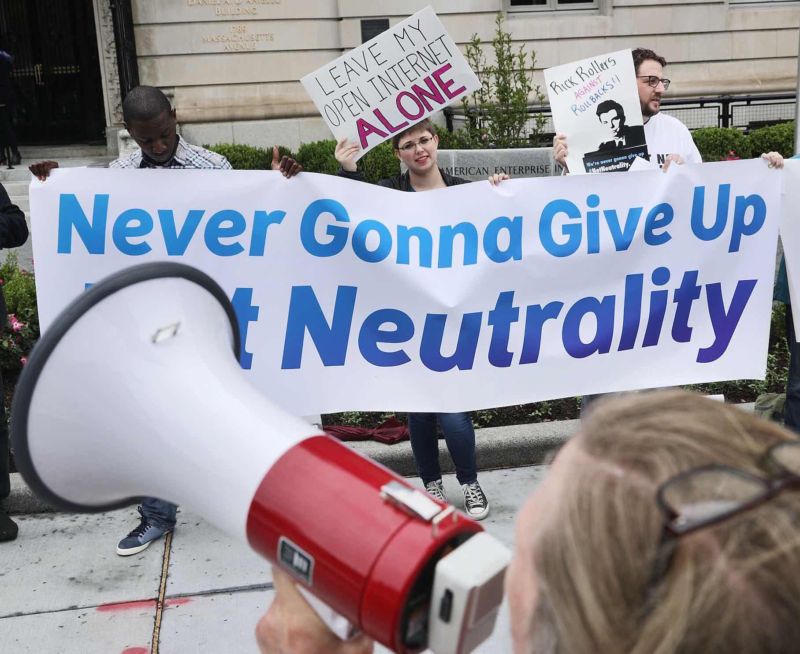
The Federal Communications Commission is expected to vote on whether to overturn its own net neutrality rules next month.
FCC Chairman Ajit Pai will unveil his final proposal next week, setting up a vote at the commission's regularly scheduled monthly meeting on December 14, according to reports from Bloomberg and Reuters. The FCC hasn't publicly confirmed the December vote, but Bloomberg and Reuters say the timeline was confirmed by people familiar with Pai's plans.
Pai was on the short end of a 3-2 vote to reclassify broadband providers as common carriers and impose the net neutrality rules in 2015, when Democrat Tom Wheeler was chair. With the FCC now controlled by Republicans, Pai is leading the charge to get rid of the rules.
The FCC voted in May to take public comment on a preliminary proposal to overturn the 2015 net neutrality order. With the public comment period now over, Pai is free to push through a final vote.
The public comments were dominated by spam and form letters, but a study funded by ISPs found that 98.5 percent of unique comments were written by people who want the FCC to leave the rules in place.
Eliminating consumer protections
At a minimum, the FCC is almost certain to reverse the classification of ISPs as common carriers under Title II of the Communications Act, removing the legal authority used to enforce net neutrality rules. The net neutrality rules forbid home and mobile broadband providers from blocking or throttling lawful Internet content or prioritizing content in exchange for payment.
Pai's final proposal could weaken the core net neutrality rules or scrap them altogether. One possibility is that "Pai may call for vacating the rules except for portions that mandate Internet service providers inform customers about their practices," according to Bloomberg.
But no matter what, the reversal of the common carrier designation will in turn eliminate numerous other consumer protections.
As we've previously written, "Title II provisions related to broadband network construction, universal service, competition, network interconnection, and Internet access for disabled people would no longer apply. Rules requiring disclosure of hidden fees and data caps could be overturned, and the FCC would relinquish its role in evaluating whether ISPs can charge competitors for data cap exemptions."
Pai's anti-net neutrality plan is supported by broadband providers and Republican politicians but opposed by consumer advocacy groups, Democrats, and businesses that use the Internet to offer services to customers. Pai claims the existing rules have harmed broadband investment, despite evidence to the contrary. Although Republican lawmakers and regulators want to eliminate the current net neutrality rules, polls have found that Republicans voters support net neutrality rules.
Democratic commissioners Mignon Clyburn and Jessica Rosenworcel are likely to vote against the anti-net neutrality plan, but Pai can expect support from fellow Republicans Michael O'Rielly and Brendan Carr.
reader comments
92